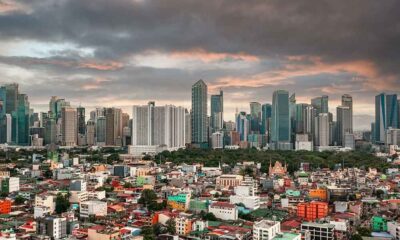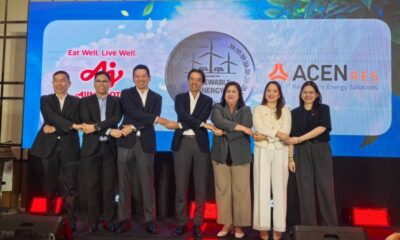Business
World Bank: PH economy to Continue Slump in 2020; Recovery in 2 Years Time
Relaxed quarantine protocols midyear gave the Philippine economy a slight boost, but not enough as the country will still experience a shrinkage of 8.1-percent this year, with recovery seen in 2021 or 2022 as improvements in the fight against coronavirus disease 2019 (COVID-19) through vaccination start, along with the collective rebound of the global economy, according to findings from the Philippines Economic Update (PEU) released Tuesday by the World Bank.
The initial forecast of -6.9 percent slump by the World Bank in October to the current -8.1 percent is a result of the poor economic activity and the extensive damage brought about by typhoons and floods the country experienced in November.
Typhoons Rolly, Siony, and Ulysses wreaked havoc in the Philippines in November, and brought devastation to a large part of the Luzon region, as massive floods occurred. This further hampered the economic outlook for the country.
“The series of natural disasters that hit the country while we are battling the pandemic highlights the importance of mainstreaming disaster risk reduction and climate change adaptation into policy and planning,” said Ndiame Diop, World Bank Country Director for Brunei, Malaysia, Thailand and the Philippines. “While the Philippines is financially resilient, stronger coordination, execution and implementation will help further improve social and physical resilience to frequent shocks.”
However, the PEU expects the Philippines to recover in the next two years, assuming continuing improvements in bringing down virus transmission.
As the relaxation of quarantine protocols continue and with COVID-19 vaccination on the horizon, industries will be able to resume operations, reviving jobs and incomes, and boosting private consumption.
This will help the economy bounce to a 5.9-percent growth in 2021 and 6.0 percent in 2022.
“While addressing the pandemic, the country needs to sustain focus on the structural reform agenda,” said Rong Qian, World Bank senior economist. “Speeding up reforms that improve the business environment, foster competition, and strengthen resilience against natural disasters will support the economic recovery and boost productivity growth in the long term.”
The government is expected to ramp up its infrastructure spending starting in the fourth quarter of 2020, creating jobs in the construction sector. Pre-election activities in the run-up to the national election in 2022 will also give al boost to demand as early as in the second half of 2021. (GFB)
































